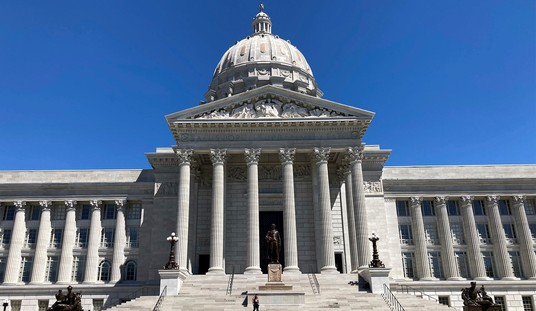 In a stunning denial of reality, Ezra Klein attempts to paint a rosy picture of Wisconsin’s budget prior to Gov. Scott Walker’s inauguration. In an article posted yesterday online, Klein excuses the union from any wrongdoing in Wisconsin’s current budgetary crisis.
In a stunning denial of reality, Ezra Klein attempts to paint a rosy picture of Wisconsin’s budget prior to Gov. Scott Walker’s inauguration. In an article posted yesterday online, Klein excuses the union from any wrongdoing in Wisconsin’s current budgetary crisis.
Says Klein:
Whatever fiscal problems Wisconsin is — or is not — facing at the moment, they’re not caused by labor unions. That’s also true for New Jersey, for Ohio and for the other states. There was no sharp rise in collective bargaining in 2006 and 2007, no major reforms of the country’s labor laws, no dramatic change in how unions organize. And yet, state budgets collapsed. Revenues plummeted. Taxes had to go up, and spending had to go down, all across the country.
Klein is committing the classic post hoc ergo propter hoc fallacy: Correlation does not necessarily imply causation. Put simply, just because A follows B does not mean that A causes B. Certainly there have been other fiscal factors that led to our current recession, but the fact that nothing has dramatically changed with the unions in the last few years is evidence of nothing when examining their impact on the recession, the long term viability of their programs, and their effect on state budgets.
Klein goes further, however, and points to a recent special session of Wisconsin’s legislature wherein some business related tax benefits were created as part of an attempt to spur growth in Wisconsin. Of course, for Klein, any break that the private sector gets will be at the cost of the state government and to the detriment of the ‘working class.’
The Badger State was actually in pretty good shape. It was supposed to end this budget cycle with about $120 million in the bank. Instead, it’s facing a deficit. Why? I’ll let the state’s official fiscal scorekeeper explain (pdf):
More than half of the lower estimate ($117.2 million) is due to the impact of Special Session Senate Bill 2 (health savings accounts), Assembly Bill 3 (tax deductions/credits for relocated businesses), and Assembly Bill 7 (tax exclusion for new employees).
In English: The governor called a special session of the legislature and signed two business tax breaks and a conservative health-care policy experiment that lowers overall tax revenues (among other things). The new legislation was not offset, and it helped turn a surplus into a deficit[see update at end of post]. As Brian Beutler writes, “public workers are being asked to pick up the tab for this agenda.”
Ironically, the link that Klein provided to prove that the tax breaks were the culprit actually serves to disprove his contention that there was any surplus to be had.
The only legislation allowed to be proposed, discussed, and enacted during the special session is that which relates to spending, taxes, job creation, and balancing the state budget. The two greatest obstacles plaguing the Walker policy agenda in the upcoming legislative session are the $2.2 billion budget deficit and an unemployment rate of 7.6 percent. Leaders from both major parties recognize the challenges facing the Badger state and are committed to putting their partisan differences aside in order to restore economic prosperity.
Given the vapor surpluses of the past (see 1999 & 2000 surpluses), it would be no surprise to find ‘evidence‘ of this mysterious state profitability. But even Klein must acknowledge that to say, “the Badger State was actually in pretty good shape,” is at best, wishful thinking.
Klein, as is the case with many liberals, ignores the fact that over-promised and unrealistic negotiations that had taken place with unions over the years are causing an unbearable strain on state economies, and regardless of their fault in the current economic conditions, have proven to be unsustainable. We cannot continue to fund and increase the size of union programs that bankrupt states whenever there is a downturn in the economy. Government spending that cannot survive the ups and downs of an economy is precisely the kind of spending that must end.
As the Governor of Michigan recently highlighted, public sector employees are paid many times more than their private sector counterparts. In Wisconsin, teacher total compensation is as high as $100 thousand and $60 thousand on the low end. With Gov. Walker’s proposal, teachers would essentially lose 7% of their net income which even at the low end would more than likely keep them above the state’s median income in the private sector of $50.5 thousand.
The overwhelming majority of Americans, regardless of union affiliation, are not responsible for the economic conditions we find ourselves in. Collectively, we will all be called on to tighten our belts and restrain spending in order to dig out of it. The unions, many of whom have received waivers to ‘opt-out’ of Obamacare, should not be allowed to opt-out of sacrifice.













Join the conversation as a VIP Member